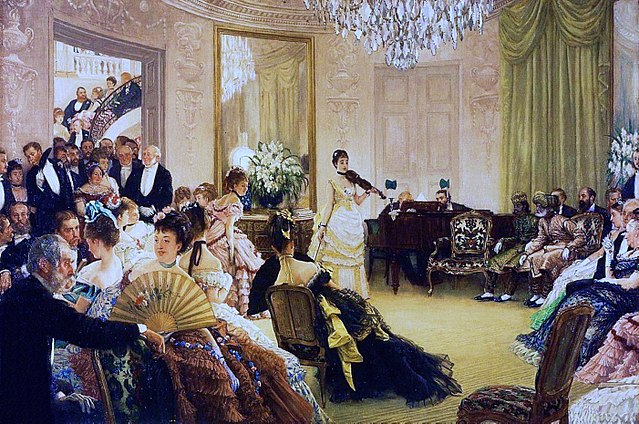I am in the curious position of being a blogger who distrusts opinions. The late yoga master B.K.S. Iyengar put it best when he wrote, “An opinion is yesterday’s right or wrong knowledge warmed up and re-served for today’s situation.” Too often opinion is divorced from both personal experience and rigorous thought.
F.A. Hayek’s essay “The Intellectuals and Socialism” is an attempt at defining the nature and function of professional opinion-havers. His description of them as, “second hand dealers in ideas,” while undoubtedly mischievous is not meant to be dismissive:
There is little that the ordinary man of today learns about events or ideas except through the medium of this class; and outside our special fields of work we are in this respect almost all ordinary men, dependent for our information and instruction on those who make it their job to keep abreast of opinion.
Knowledge that does not come from our own experience or thought is always second hand. Much of the second hand knowledge we find useful, rightly or wrongly, comes from those who read and think in a public professional capacity. It is the public facing nature of their writing and speaking which makes the intellectual and not necessarily any originality or expertise,
…he need not possess special knowledge of anything in particular, nor need he even be particularly intelligent, to perform his role as intermediary in the spreading of ideas. What qualifies him for his job is the wide range of subjects on which he can readily talk and write, and a position of habits through which he becomes acquainted with new ideas sooner than those to whom he addresses himself.
The intellectual is an intellectual in so much as they know more than their audience, they are first and foremost communicators of ideas and not necessarily their source. The sources of ideas themselves, original thinkers and practitioners of all kinds, are in turn dependent on intellectuals for their reputations which are, “made by that class and are inevitably affected by its views on subjects which have little to do with the merits of the real achievements.”
While intellectuals serve a necessary social function they too often do the public a disservice by presenting and critiquing persons, ideas, events, and things they do not understand. This disservice itself is compounded by the raising in status of poor thinkers and practitioners, “mostly of rather doubtful standing in their profession, which are taken up and spread by the intellectuals.”
Ideas which have a superficial moral force, reductionist explanatory power, pseudo-scientific veneer, and an ideological program such as socialism are ideally suited to this sort of corrupt intellectual exercise in re-heating and re-serving up of yesterday’s wrong knowledge to address the problems of today. But if the role of the intellectual is indeed vital, how can intellectuals avoid the errors which they so frequently fall prey to?
Hayek believed the particular problem of the intellectuals and socialism would be best solved by a “liberal utopianism” which presents a vision of the free society that provides a genuine moral force, explanatory power, scientific rigor, and an ideological program. This would be a mistake. The best of the liberal tradition is grounded in a Christian tradition that rejects all utopias this side of the eschaton as the Catechism of the Catholic Church so artfully explains,
The Antichrist’s deception already begins to take shape in the world every time the claim is made to realize within history that messianic hope which can only be realized beyond history through the eschatological judgment. The Church has rejected even modified forms of this falsification of the kingdom to come under the name of millenarianism, especially the “intrinsically perverse” political form of a secular messianism. (CCC 676)
What is necessary is a reformulation of the vocation of the intellectual itself. St. Paul’s admonition to the Thessalonians should be a model:
Now about your love for one another we do not need to write to you, for you yourselves have been taught by God to love each other. And in fact, you do love all of God’s family throughout Macedonia. Yet we urge you, brothers and sisters, to do so more and more, and to make it your ambition to lead a quiet life: You should mind your own business and work with your hands, just as we told you, so that your daily life may win the respect of outsiders and so that you will not be dependent on anybody. (1 Thessalonians 4:9-12)
Hayek alludes several times in his essay to the social pressures applied to intellectuals by both institutions and one another which result in ideological conformity. The embracing of an ethos of love and respect among intellectuals would diffuse such conformism and open up the public to a broader and more inclusive discussion of ideas. It would mean a quieter class of intellectuals who would put truth at the center of their conversation.
As to minding their own business, intellectuals would seek to speak more deeply about a narrower range of topics. Their own personal experience and intellectual energy should bring them closer to the original thinkers and practitioners whom they popularize. They should be, or strive to be, experts themselves. This involves both dedicated practice and study as well as a renunciation of opinions about topics they cannot dedicate the time and energy to understand.
We need intellectuals, but not just any intellectuals. To paraphrase Hayek himself, an intellectual who is only an intellectual is both a nuisance and a danger.
(Photo Credit: An aristocratic Parisian salon in the nineteenth century by James Tissot. Public Domain.)

